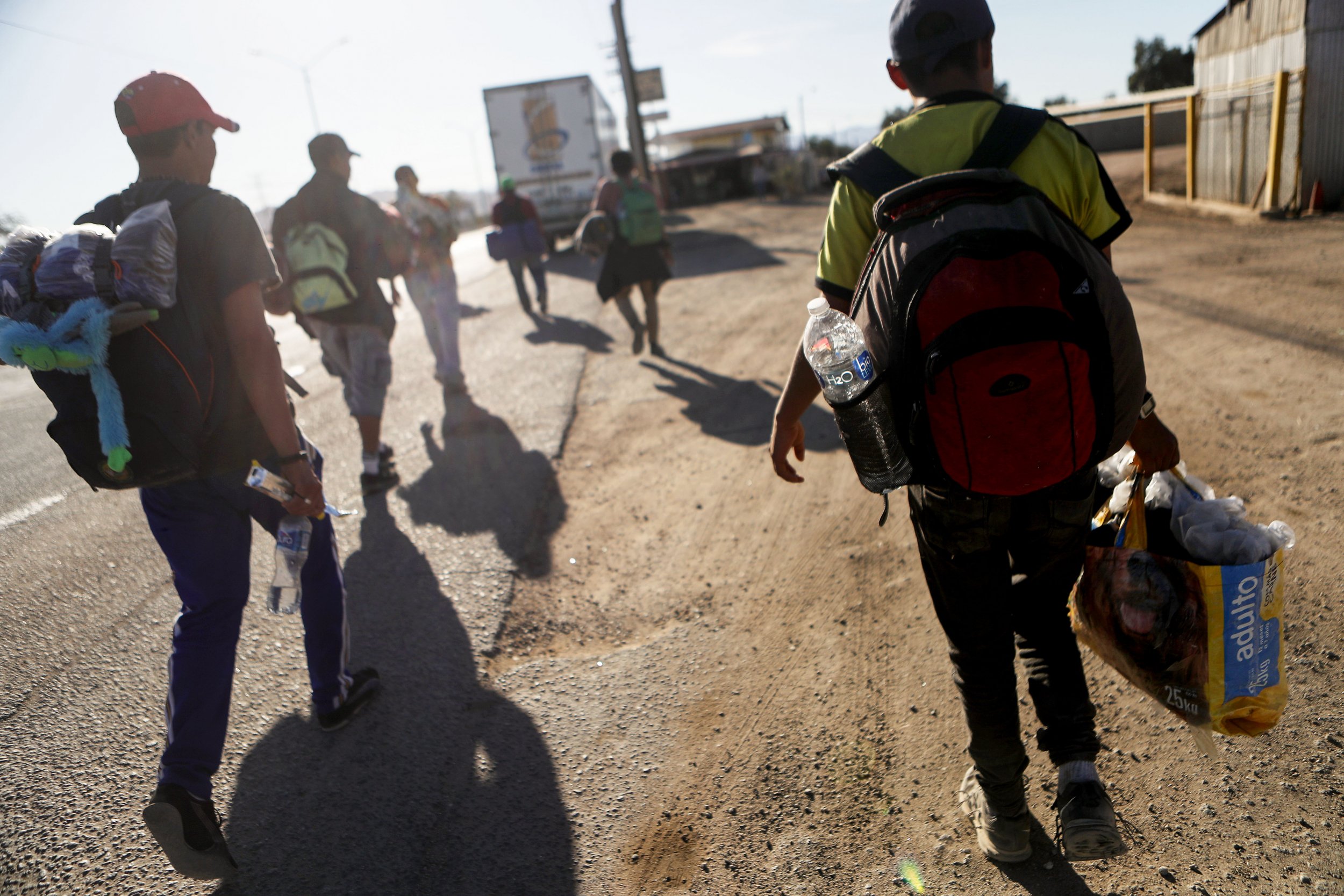
After Sunday's clashes at the U.S.-Mexico border, dozens of Central American asylum seekers have reportedly signed up to leave Mexico and return to their home countries, which many fled over fears of violence and economic and political instability.
Grupos Beta, the humanitarian arm of Mexico immigration authority, told Buzzfeed National Security Correspondent for Immigration Adolfo Flores that at least 30 members of the caravan had elected to "self-deport" on Monday morning alone, which is twice the amount of people that typically opt to return to their home countries over the course of a full day.
The humanitarian group said it believed more people were choosing to return to their home countries because they were "scared" after Sunday's clashes at the border, which saw U.S. Border Patrol agents fire tear gas at asylum seekers after hundreds rushed the U.S.-Mexico border.
"The border is not like people and the news back home says it is," Javier Gonzalez, one of the asylum seekers who chose to "self-deport" on Monday, told Flores. "They said it was safe and easy.
"We came to find the American dream and all we found was a nightmare," he said.
CBS News Correspondent Mireya Villarreal corroborated Flores's report, sharing photos of caravan members in Tijuana and stating that Sunday's violence at the border had pushed some to "voluntarily self-deport."
The Trump administration has staunchly defended its use of tear gas against asylum seekers, including families with small children, with President Donald Trump claiming that Border Patrol agents had been "rushed by some very tough people."
An agent with Grupos Beta, the humanitarian arm of Mexico’s immigration authority, told me 30 people from the caravan have elected to self deport this morning. It’s double than the 15 they get daily and believe it’s because people are scared after yesterday.
— Adolfo Flores (@aflores) November 26, 2018
The U.S. leader appeared to acknowledge that children were affected in the incident, but said that a "very minor form of the tear gas itself" was used, claiming that the substance was "very safe."
In fact, the substance used by Border Patrol agents was 2-chlorobenzylidene malononitrile, the standard form of tear gas, which CBP told Newsweek it has used since the year 2010, including in 29 instances in the fiscal year 2018.
CBP has also defended its use of the substance on Sunday, claiming that asylum seekers had thrown projectiles at Border Patrol agents, with some of the objects striking personnel.
In addition to being "dismayed by [Sunday's] violence," LA Times columnist Robin Abcarian shared a tweet, showing a group of young men from El Salvador and stating that the asylum seekers were also choosing to self-deport over the apparent "lack of asylum possibilities."
Dismayed by yesterday’s violence, long food lines and lack of asylum possibilities, these young men from El Salvador are self deporting today. pic.twitter.com/05ZDdLaCbe
— Robin Abcarian (@AbcarianLAT) November 26, 2018
Thousands of Central Americans are currently stationed in Mexican border town Tijuana, waiting to make their asylum claims at the San Ysidro port of entry in San Diego with only around 100 asylum claims being processed each day, if not less.
Many could be waiting for weeks, if not months, before their asylum claims are heard.
It is unclear how many asylum seekers have chosen to return to their home countries since Sunday's clashes at the border.
Mexican immigration officials have not immediately responded to a request for comment from Newsweek.
Uncommon Knowledge
Newsweek is committed to challenging conventional wisdom and finding connections in the search for common ground.
Newsweek is committed to challenging conventional wisdom and finding connections in the search for common ground.
About the writer
Chantal Da Silva is Chief Correspondent at Newsweek, with a focus on immigration and human rights. She is a Canadian-British journalist whose work ... Read more
To read how Newsweek uses AI as a newsroom tool, Click here.








